"I'll Take Care of Myself When Life's Less Busy"
That's how my story starts: years of deferring my health, a slow progression of weight gain, and countless promises to work on it “on Monday” - I had plenty of time.
When There Are No Mondays Left
Losing both of my parents within three years of one another set off a series of events that I could no longer ignore. The weighted blanket of grief made it easy to brush off the general feeling of unwellness and exhaustion that seemed to linger. Benign symptoms were soon joined by shortness of breath when I climbed a few stairs or carried something heavy. My brain rationalized they were signs I needed to stop waiting for Monday to find time to prioritize my health, clueless that they were red flags of something more sinister.
Terror Becomes a Wake-Up Call
One early morning in May 2016, I was jolted awake. I thought I was having a panic attack. My heart pounded like it was trying to escape my chest. I could feel my blood pulsating down the left side of my body. Getting out of bed to "walk it off" made each breath more difficult.
Reluctantly, because who likes to wake anyone else at 2 am, I calmly whispered to my sleeping husband, "We need to go to the ER. I think I'm having a heart attack."
Thankfully, we live 8 minutes from a Level II Trauma Center and God was already in the details.
Everything was a blur when we arrived at the emergency department - oxygen, pokes, beeps, scans, and calming reassurance from the critical care team, "We're going to take good care of you."
Thirty-one minutes later, the ER doctor diagnosed my “heart attack” as a massive pulmonary embolism with right ventricular heart failure - "It's a miracle you were able to walk in here."
Terror to Testimony
I had a blood clot so large it was corking off the main artery to both of my lungs, preventing blood flow to the rest of my body and organs. I was admitted to the ICU, where an AMAZING vascular surgeon used a newer procedure called EKOS™ Endovascular System to "uncork" my cardiovascular system. A catheter was threaded through a vein in the side of my neck, to the clot in my pulmonary artery, breaking it up with a combination of clot-busting drugs and ultrasonic sound waves.
I was released from the hospital three days later to continue my recovery follow up with a hematologist and begin my crash course in blood clot education and advocacy.
After a year of anticoagulation therapy, blood, and genetic testing to find the reason for my clot, my hematologist ruled it as "unprovoked."
I was offered two options:
- Manage future risk of recurrence with daily aspirin and Lovenox injections for confined travel over 2 hours.
- Continue with Warfarin.
I chose option one. My Warfarin side effects were miserable, and my hematologist felt stopping would be fine.
The Knowledge I Lacked
Obesity and lifestyle were listed 8 times in my hospital progress notes. But the number of times they were discussed during recovery and the decision-making process to stop anticoagulation (aka "blood thinners")?
Zero.
I completely trusted the expert.
Four years later, that lack of knowledge of the connection between lifestyle habits and blood clots, combined with my "I'll Start on Monday" mentality, contributed to my second venous thromboembolism (VTE).
I spent a week in the ICU during the height of Covid.
A Second Recovery and a New Perspective
My second recovery was different. My mind took the hit harder than my body, especially after learning that lifestyle not only impacts VTE but also moderates genetic and familial risks of blood clots like mine.
Blood clot education is often placed into silos of "provoked" vs. "unprovoked," with little explanation of modifiable triggers. That's why I share my story – so other women will understand the link to lifestyle and the importance of becoming confident leaders of their health.
Life After Blood Clots
I'm now in a long-term committed relationship with Eliquis. Except for managing chronic venous insufficiency and post-clot PTSD at times, I'm fully recovered.
As crazy as it sounds, blood clots have become a blessing because of my ability to think beyond “unprovoked” and combine current scientific research and guidelines with a patient-centered care team to take back and change my health – including a 92lb weight loss post-menopause and without hormone therapy.
I've also learned the importance of being my advocate in a healthcare framework that is often difficult to navigate as a woman with an “impressive blood clotting history.”
More Than Awareness
I want my story to go beyond awareness, education, and empowerment. I want women to see that health, wellness, and life without crippling fear is possible after blood clots.
There's never a right time to prioritize your health and wellness, ladies.
No more, “I’ll start on Monday.” There is only now. Start where you are. Do what you can - small, simply habits with consistency can have BIG impacts on your health.
Join the Movement
Explore the resources on this website, connect with our community, and take the first step on your journey to a healthier, more empowered blood clot survivor.
